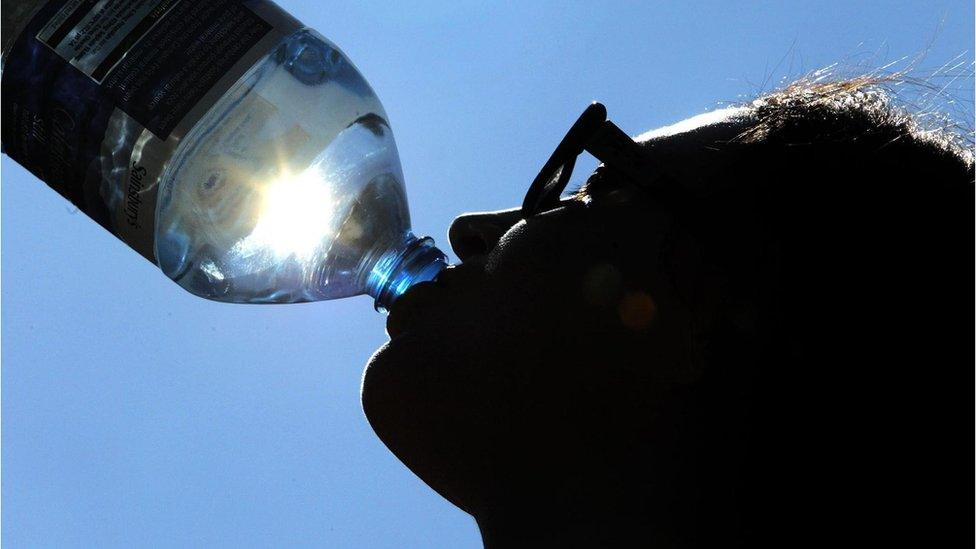Plastic pollution: Bangor University researchers get samples in wine bottles
- Published

"Waterloggers" across the UK are helping to collect enough samples for the study
The clinking of wine bottles in Welsh waters is signalling a fresh fight against plastic pollution.
Covid travel restrictions had threatened to stop swimmer Laura Sanderson's microplastics monitoring.
But her fellow wild swimmers have been taking empty bottles of wine into rivers and lakes across the UK to support the research.
Each sample collected by the "waterloggers", will be tested by Bangor University for microplastics.
Allow X content?
This article contains content provided by X. We ask for your permission before anything is loaded, as they may be using cookies and other technologies. You may want to read X’s cookie policy, external and privacy policy, external before accepting. To view this content choose ‘accept and continue’.

Ms Sanderson, 38, from Snowdonia, who is the founder of We Swim Wild, said: "Swimmers up and down the country have been taking on the biggest citizen science study on microplastics in UK waters.
"We wanted to look at different water sources. They've been sending samples from urban waterways to crystal clear mountaintops. We have seen samples taken in underground caving systems, tidal estuaries, mountain lakes, rivers and tarns," she said.
"My van is full of wine bottles!"
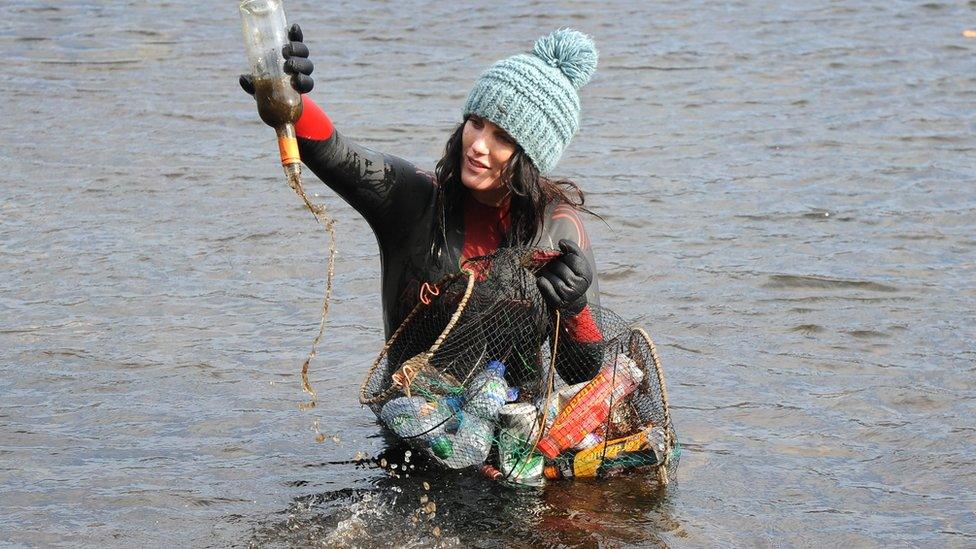
Laura Sanderson has recruited waterloggers from every county
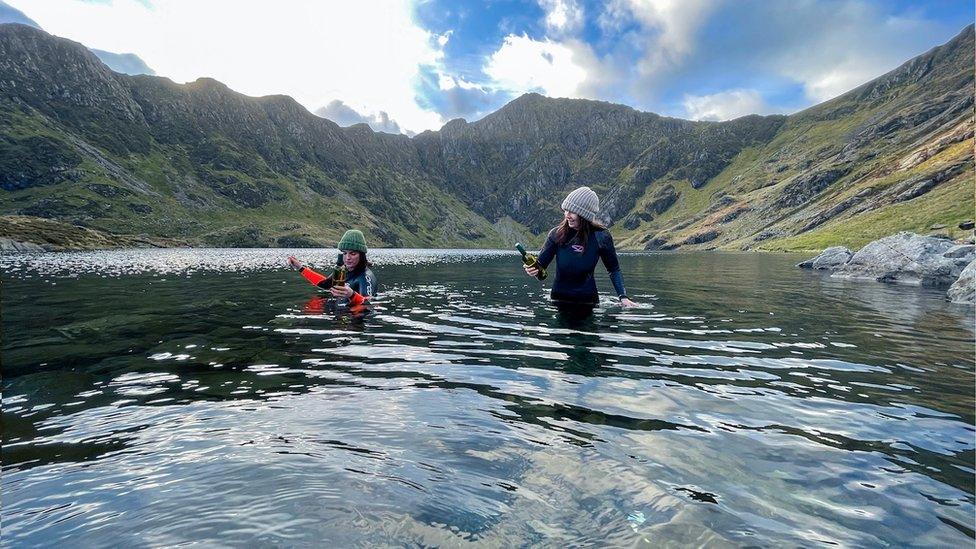
Cader Idris in Snowdonia was one of the areas where water samples were collected
She said getting local swim groups to become waterloggers for microplastics research was useful because "people who love the place where they swim know they need to take to protect it and are more likely to be horrified if they find it in their local swim spot."
Senior lecturer Christian Dunn is heading Bangor University's microplastics research team, which has been receiving deliveries of the water-filled wine bottles in the run-up to Christmas.
That is proving to be a lot of empties - with at least one swimmer or group in every county taking part in the waterlogging, and each taking four bottles.
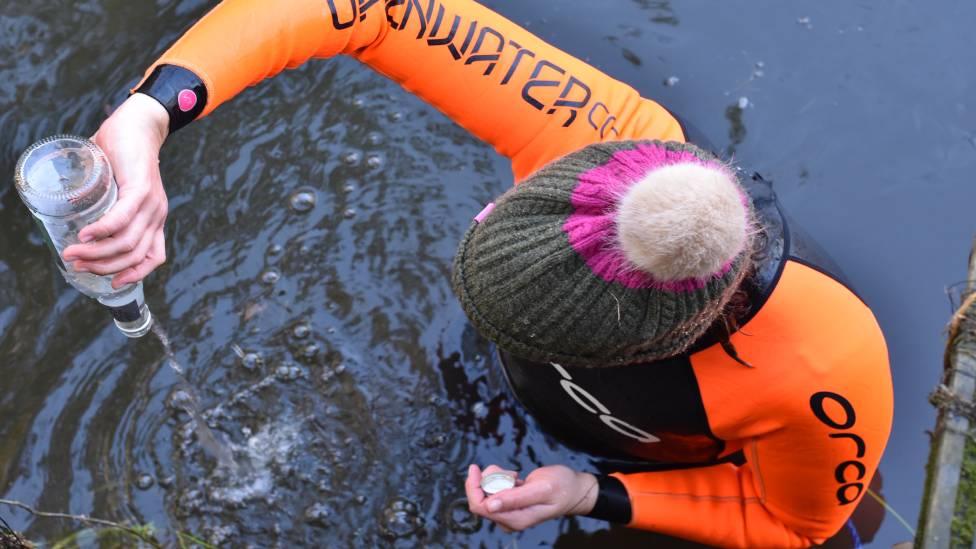
Covid travel restrictions had threatened microplastics monitoring

Screw-top wine bottles were used to collect the water samples
"We'll be getting the water samples, filtering them through filter paper, drying that filter paper and then looking at it through a microscope, a dissection microscope," said Dr Dunn.
"We'll be attaching a fluorescent light kit system to that microscope which will allow us to see some of those microplastics more easily because they will light up - they'll look as if they're glowing under the microscope."
- Published7 July 2019
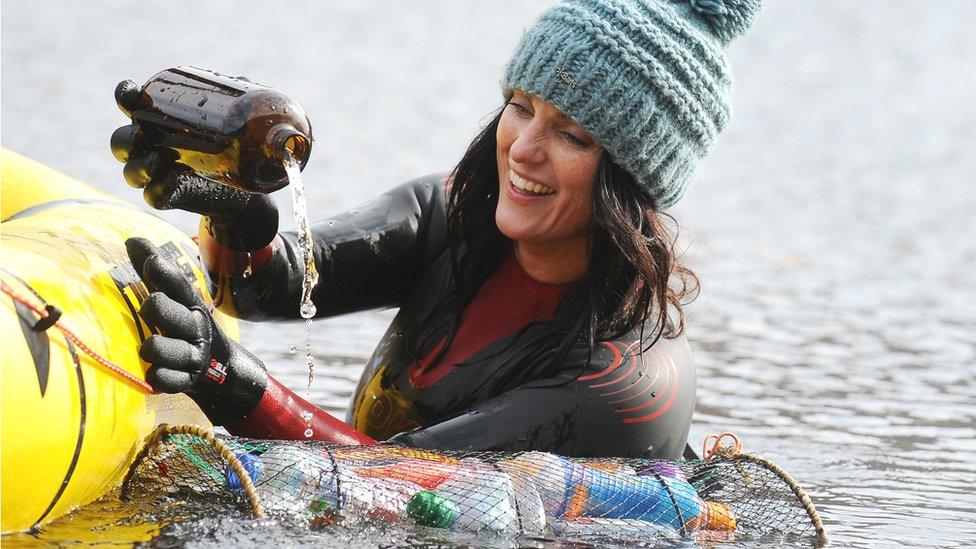
- Published27 September 2020
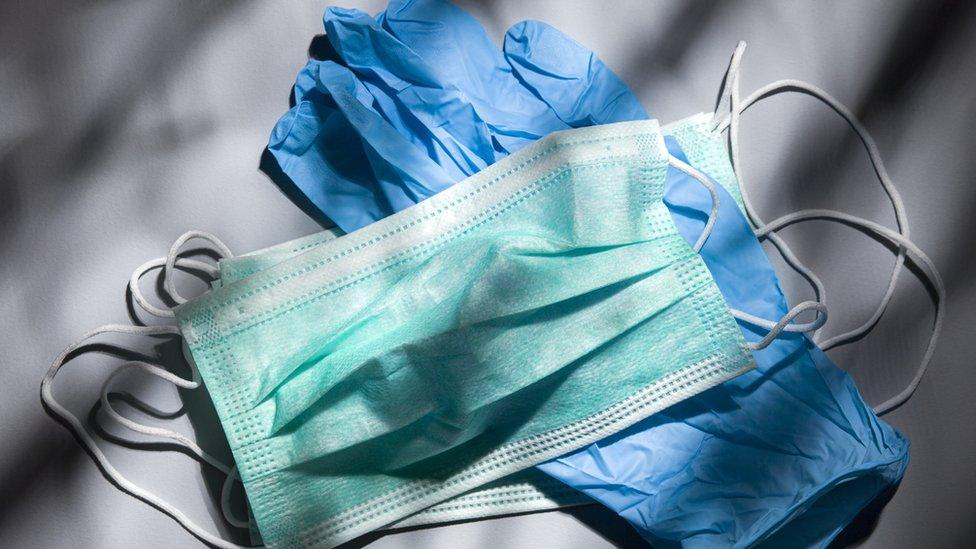
- Published2 August 2020
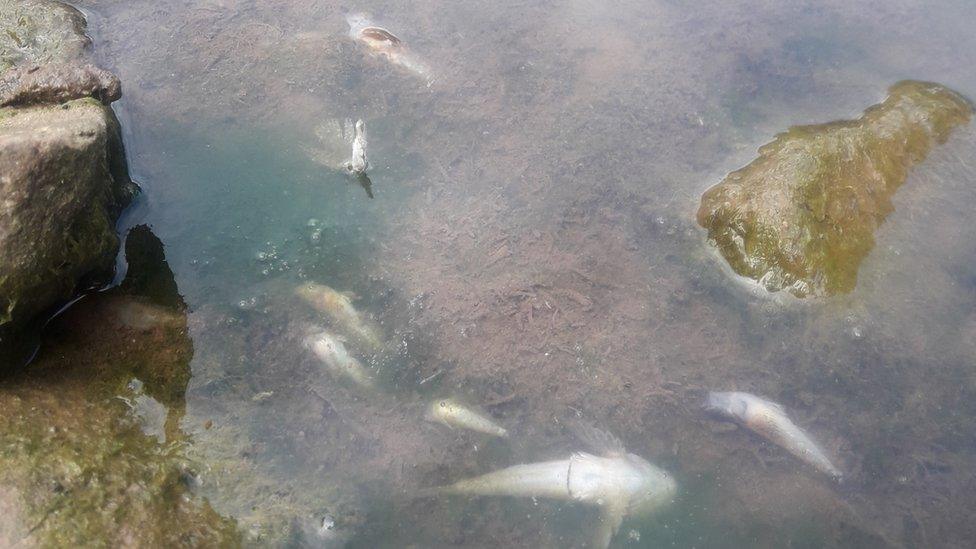
- Published5 June 2018
